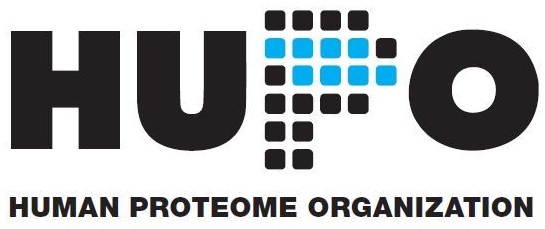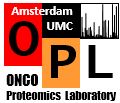
Connie Jimenez highlighted in HUPOST as Human of HUPO
- Post by: OPL
- September 11, 2023
- Comments off
Connie Jimenez, The Netherlands
What is your current position and location?
I am full Professor of Translational OncoProteomics, Principle Investigator of the OncoProteomics Laboratory and Director of the Proteomics Core Resource, all at Amsterdam University Medical Center, in the beautiful city Amsterdam where I was born, in The Netherlands.
How did you get started in the field of proteomics?
I fell in love with mass spectrometry early on in my scientific career, when I was as a PhD student in the field of neurobiology at the Vrije Universiteit in Amsterdam under the supervision of Dr. Ka Wan Li. Starting in 1992, I applied MALDI-TOF-MS to single dissected giant neurons of the snail brain to understand neuropeptide neurotransmission. This single cell profiling worked miraculously well, detecting by mass all the known neuropeptides and identified many more. It took 2 years to characterize them by Edman degradation and later-on when tandem MS of peptides became available. Today all sequencing could have been done in short time from a single cell! In the following years the field of “biological mass spectrometry” evolved into proteomics. My first steps into proteomics were in the laboratory of Prof. Al Burlingame at UCSF, San Francisco. After my post-doc in the US, I moved back to Amsterdam where in 2006, I was fortunate to get a start-up grant of the Cancer Center Amsterdam to found the OncoProteomics Laboratory (www.oncoproteomics.nl).
What does being a member of HUPO mean to you?
I am a team player by nature. I like to learn and be inspired by other people, to share best practices, to collaborate and perform studies that a single lab can not do. To stimulate exchange in The Netherlands, I founded the Netherlands Proteomics Platform in the early proteomics days in 2001. At the European level, I currently serve as elected Vice-President of the European Proteomics Association. The international HUPO conferences are an excellent way to make new connections and start new collaborations. As co-chair of the HUPO cancer project, I am very excited about the DIA-MS-based pan-cancer landscape of over a 1000 cancers that we generated with a few HUPO labs.
What makes your research program exciting and unique?
Clinical proteomics is our focus of interest. For large-scale profiling, we now apply data-independent acquisition mass spectrometry to study cancer tissues and clinical trial needle biopsies, urinary vesicles in cancer and cerebrospinal fluid in dementias, to name a few spear points. Being based at an academic medical hospital enables clinical collaboration and gives us access to unique clinical samples series and work on clinical needs. In the oncology context, where personalized treatment requires analysis of single samples, I am very excited about phosphoproteomics coupled to our Integrative Inferred Kinase Activity (INKA) single sample analysis approach that is a great tool to prioritize actionable kinases for (combination) kinase inhibitor treatment of cancer.
What are your interests outside the lab?
I am interested in bio-hacking, natural health and food as medicine. It is amazing what can be done with diet and lifestyle to feel fit and reverse chronic disease. In my free time, I love to listen to podcasts with experts in these areas. I also enjoy to simply sit in my little yard when the sun shines and watch my rabbits, spend time with my two, now grown-up, sons and husband, hang out with them going around the canals in our boat with some food and wine, or go discover new places on holidays that combine visits to cities and nature. Last but not least, being half Spanish, I also love to go to Spain, to discover new places in this amazing country and visit my father who now lives there. Walking the Camino de Santiago when I find the time, is on my bucket list.
Where do you envision the field of proteomics in the next 10 years?
In 10 years, I envision that mass spectrometry-based proteomics will have entered the clinic, where at least in some academic hospitals, clinicians are able to order a plasma, CSF or urinary (vesicle) proteome or a tumor phosphoproteome. So much insight can be gained from comprehensive protein profiles and/or targeted analysis of disease signatures. I will work hard to make this happen.
